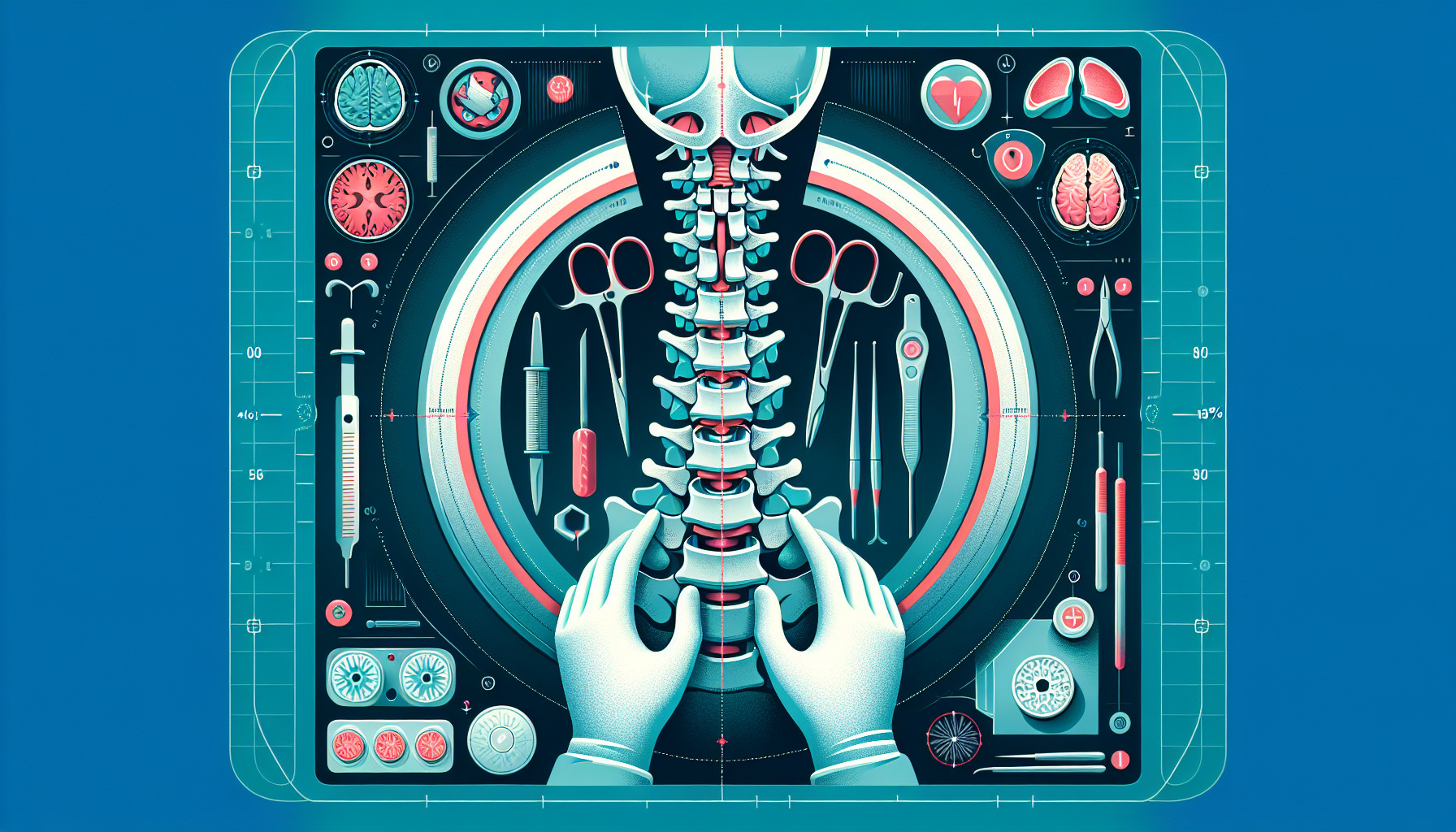Our Summary
This research paper investigates the differences in complications and functional outcomes in patients who have had a spinal fusion surgery and are now undergoing a Total Hip Arthroplasty (THA), a hip replacement surgery. The researchers reviewed various databases and studies involving over 1.7 million patients, with 31,786 of them having had a spinal fusion surgery in the past.
The results show that the group of patients with a history of spinal fusion experienced significantly more complications, like dislocation of the hip and fractures around the artificial hip joint. They also had more instances of needing revision surgery (a follow-up surgery to correct issues with the initial surgery). These complications were particularly high within the first three months after the hip replacement surgery.
Moreover, these patients also reported more pain and had a worse functional outcome, meaning their ability to move and perform daily activities post-surgery was lesser than those patients who did not have a spinal fusion surgery in the past.
These findings suggest that patients with a history of spinal fusion surgery who are undergoing a hip replacement may need additional care and attention during the surgical process as they are at a higher risk of complications and poorer recovery outcomes.
FAQs
- Do patients with a history of spinal fusion surgery experience more complications during hip replacement surgery?
- What kind of complications could occur in patients with a history of spinal fusion surgery when undergoing a hip replacement?
- Does a history of spinal fusion surgery affect the recovery and functional outcome of a hip replacement surgery?
Doctor’s Tip
One helpful tip a doctor might tell a patient about spinal fusion is to ensure they follow post-operative rehabilitation and physical therapy protocols diligently. This can help improve their recovery and overall functional outcome after surgery. Additionally, patients should inform their healthcare providers about their history of spinal fusion when undergoing other surgeries, like a hip replacement, to ensure proper care and monitoring to prevent complications.
Suitable For
Patients who are typically recommended spinal fusion surgery are those with conditions such as degenerative disc disease, spinal stenosis, spondylolisthesis, scoliosis, spinal fractures, and other spinal deformities. These patients may have chronic back pain, nerve compression, instability in the spine, or other issues that have not improved with conservative treatments such as physical therapy, medications, or injections. Spinal fusion surgery may be recommended as a last resort to stabilize the spine, reduce pain, and improve overall function.
Timeline
Before spinal fusion surgery:
- Patient experiences chronic back pain, numbness, weakness, or other symptoms related to spinal issues.
- Patient undergoes diagnostic tests such as X-rays, MRIs, and CT scans to determine the extent of the spinal problem.
- Patient may undergo conservative treatments such as physical therapy, medications, or injections to manage symptoms.
- If conservative treatments fail, patient and surgeon decide on spinal fusion surgery as a treatment option.
After spinal fusion surgery:
- Patient undergoes pre-operative evaluation and preparation for surgery.
- Surgery is performed, where the surgeon fuses together two or more vertebrae using bone grafts, metal plates, and screws to stabilize the spine.
- Patient is monitored in the hospital for a few days post-surgery for pain management and to prevent complications.
- Patient undergoes physical therapy and rehabilitation to regain strength and mobility in the spine.
- Patient may experience temporary pain and discomfort during the recovery period.
- Over time, patient’s pain and symptoms improve as the spine heals and stabilizes.
- Patient resumes daily activities with improved mobility and function in the spine.
What to Ask Your Doctor
Some questions a patient should ask their doctor about spinal fusion in relation to hip replacement surgery include:
- What specific complications or risks are associated with having a history of spinal fusion surgery and then undergoing a hip replacement surgery?
- How will my previous spinal fusion surgery impact the success and recovery of the hip replacement surgery?
- Are there any additional precautions or measures that need to be taken during the hip replacement surgery due to my history of spinal fusion?
- What is the likelihood of needing revision surgery or experiencing complications following the hip replacement surgery?
- How will my pain management and rehabilitation plan differ compared to someone without a history of spinal fusion undergoing a hip replacement surgery?
- Are there any specific exercises or precautions I should take post-surgery to ensure the best possible outcome given my spinal fusion history?
- Will my recovery time be longer or more challenging compared to someone without a history of spinal fusion undergoing a hip replacement surgery?
- Are there any alternative treatment options or considerations I should be aware of given my history of spinal fusion surgery?
- How will my overall mobility and functional outcome be affected by having both a spinal fusion and hip replacement surgery?
- What additional support or resources are available to help me navigate the potential challenges and complications associated with having both surgeries in my medical history?
Reference
Authors: Soler F, Murcia A, Mariscal G. Journal: Eur Spine J. 2024 Mar;33(3):1001-1012. doi: 10.1007/s00586-024-08133-9. Epub 2024 Jan 24. PMID: 38267733
